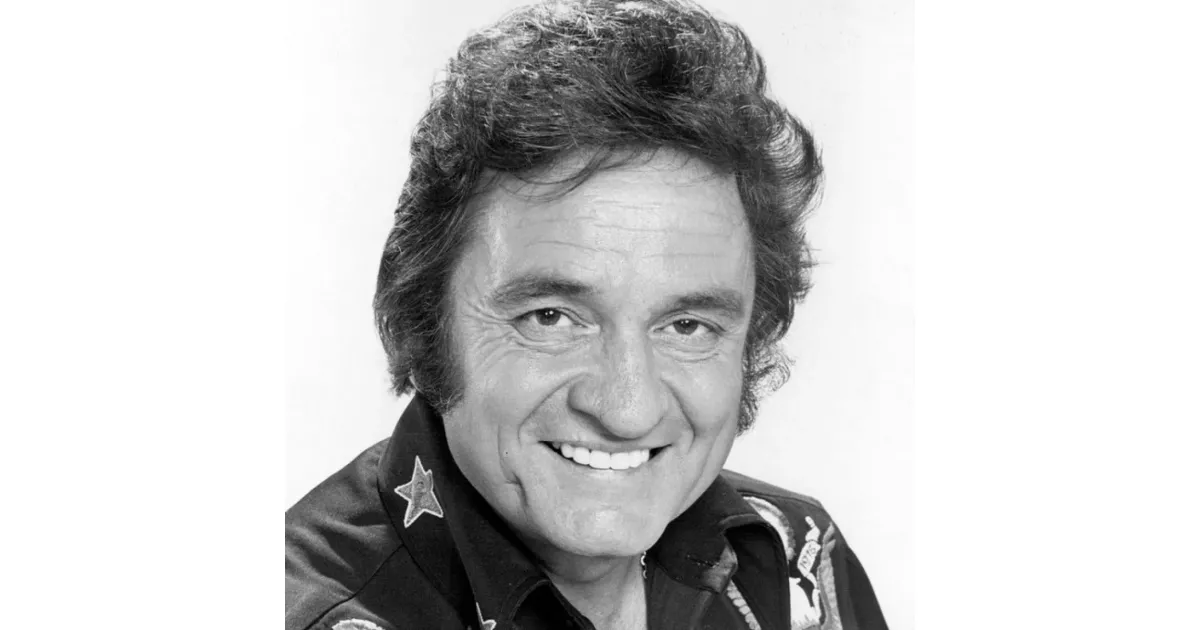Resilience and perseverance in the journey of Johnny Cash. A timeline of obstacles and growth.
Johnny Cash, the "Man in Black," was a highly influential American singer-songwriter renowned for his distinctive bass-baritone voice and the signature train-like sound of his band, the Tennessee Three. His music often explored themes of sorrow, moral struggles, and redemption, particularly in his later work. Known for his rebellious persona juxtaposed with a somber humility, he famously performed free concerts in prisons. Cash's all-black attire became his trademark, solidifying his iconic status in music history.
1944: Death of Jack Cash
In 1944, Johnny Cash's older brother Jack died from injuries sustained in a table saw accident. This event had a profound impact on Cash, who felt guilt over the incident.
1962: Cash and First Wife Separate
In 1962, Johnny Cash and his first wife Vivian separated, reaching a low point due to his severe drug addiction and destructive behavior.
June 1965: Cash's Camper Sets Off Forest Fire
In June 1965, Johnny Cash's camper caught fire during a fishing trip, starting a forest fire in Los Padres National Forest, California, that burned several hundred acres. The cause was disputed, with Cash blaming a defective exhaust system and others attributing it to a campfire gone awry while he was under the influence of drugs.
1966: Divorce from Vivian Liberto
In 1966, Vivian Liberto filed for divorce from Johnny Cash due to his substance abuse, touring, adultery, and close relationship with June Carter.
1977: Cash Relapses into Amphetamine Use
In 1977, Johnny Cash began using amphetamines again.
1983: Cash Enters Rehab at the Betty Ford Clinic
By 1983, Johnny Cash was deeply addicted again and entered rehab at the Betty Ford Clinic for treatment.
1983: Relapse into Addiction After Abdominal Injury
In 1983, Johnny Cash relapsed into addiction after being administered painkillers for a serious abdominal injury caused by an incident in which he was kicked and wounded by an ostrich on his farm.
1984: Leaving Columbia Records
After more unsuccessful recordings were released between 1984 and 1985, Johnny Cash left Columbia Records.
1985: Leaving Columbia Records
After more unsuccessful recordings were released between 1984 and 1985, Johnny Cash left Columbia Records.
1987: Signing with Mercury Records
In 1987, after being dropped by Columbia Records, Johnny Cash signed with Mercury Records, marking the beginning of a short and unsuccessful stint with the label.
1988: Double Bypass Surgery
In 1988, Johnny Cash underwent double bypass surgery after Waylon Jennings suggested that Cash get his heart condition checked out.
1989: Cash Enters Cumberland Heights Treatment Center
In 1989, Johnny Cash entered Nashville's Cumberland Heights Alcohol and Drug Treatment Center.
1992: Cash Enters Loma Linda Behavioral Medicine Center for Final Rehab
In 1992, Johnny Cash started care at the Loma Linda Behavioral Medicine Center in Loma Linda, California, for his final rehabilitation treatment. His son followed him into the facility several months later.
October 25, 1997: Collapse on Stage and Parkinson's Announcement
On October 25, 1997, Johnny Cash nearly collapsed on stage in Flint, Michigan, and subsequently announced to his audience that he had Parkinson's disease, which was later discovered to be a misdiagnosis.
1997: Cash Reflects on Drug Use
In a 1997 interview, Johnny Cash reflected on his past drug use, noting that the pills eventually started taking him.
1998: Hospitalization with Pneumonia
In 1998, Johnny Cash was hospitalized with severe pneumonia, resulting in damage to his lungs and further impacting his health.
April 10, 2007: Fire Destroys Cash's Former Home
On April 10, 2007, a fire erupted at Johnny Cash's former lakeside home in Hendersonville during renovation work for the new owner, Barry Gibb. The fire spread quickly due to flammable wood preservative, resulting in the complete destruction of the building.
Mentioned in this timeline

Bob Dylan is a highly influential American singer-songwriter renowned as...

The White House located at Pennsylvania Avenue NW in Washington...

Linda Ronstadt is a versatile American singer renowned for her...
CBS Broadcasting Inc CBS is a prominent American commercial broadcast...

Elvis Presley the King of Rock and Roll was a...
California is a U S state on the Pacific Coast...
Trending

46 minutes ago Cameron Boozer: Duke Forward, Elite Numbers, and Wooden Award Favorite

47 minutes ago Josiah Harrell's Sensational UFC Debut After Rare Brain Disease Diagnosis: A Houston Story

47 minutes ago Rajah Caruth shines at JR Motorsports; Mayer takes pole; Mears avoids crash.

48 minutes ago Anthony Black scores 20 points in Magic's Thursday's victory, Desmond Bane contributes.

48 minutes ago Yaxel Lendeborg's life story, Michigan rise, and draft prospects are revealed.
2 hours ago Alabama Basketball Faces LSU: A Crucial Road Matchup and Maturity Test Looms
Popular

Jesse Jackson is an American civil rights activist politician and...

Barack Obama the th U S President - was the...

Ken Paxton is an American politician and lawyer serving as...

Bernie Sanders is a prominent American politician currently serving as...
Randall Adam Fine is an American politician a Republican who...

Michael Joseph Jackson the King of Pop was a highly...
